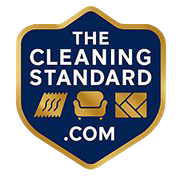Meter Maid
The Undetective
- Joined
- Nov 29, 2017
- Messages
- 3,868
- Name
- Chris
Here we go.
Ok c o r g i eOr a snake oil salesman
Jebus chub chub, you strung out on sprinkles and fritter glaze or what?And of course I use an acid rinse, I always do on piss jobs. It doesn’t have an affect on stabilized chlorine dioxide, because it’s made from tech grade sodium chlorite, which is about the only stuff carpet cleaners can buy.
When the gurus talk about problems from chlorine dioxide, they are talking about chlorine dioxide not made from tech grade Chlorite.
It’s disingenuous to use that for marketing, because one just can’t order non-tech grade chlorite from just anywhere.
Just explaining to you what the truth is.Jebus chub chub, you strung out on sprinkles and fritter glaze or what?
Just asking a question, I don't do piss and was curious.
@Tom Forsythe is this correct?but most acid rinses use citric acid, which is completely stable with chlorite.
Yes. No bleaching. I do not use oxidizers in prespray. Try harderAny of you armchair chemists rinse your Amazon clo2 with an acid yet?
You’re doing it wrong unless you pay eight dollars an ounce.Yes. No bleaching. I do not use oxidizers in prespray. Try harder
Sounds like a good time overseas!!!You’re doing it wrong unless you pay eight dollars an ounce.
Typically because there's an incompatibility between a chemical component and the type of plastic the bottle is made from. I could also understand if the stuff was packed hot or at a high elevation...Why is the container squeezed in?
Probably could have up sold garburator replacement.
Flex Ice: Sulfamic acid, Fab Set, End Zone: Glycolic Acid first, citric acid second. Citric acid has a tendency to be a light re-soiler which is why we add an encap to End Zone to ONLY mitigate this negative aspect of citric acid, A few acid rinses use phosphoric. Overall, Glycolic is the most used acid in these rinses.@Tom Forsythe is this correct?
They all in the same pH range? I didn’t really mean that citric acid alone is stable with chlorite, I meant pH of citric acid and other acids in that range.Flex Ice: Sulfamic acid, Fab Set, End Zone: Glycolic Acid first, citric acid second. Citric acid has a tendency to be a light re-soiler which is why we add an encap to End Zone to ONLY mitigate this negative aspect of citric acid, A few acid rinses use phosphoric. Overall, Glycolic is the most used acid in these rinses.
Do you have any plans on jumping on the CL02 bandwagon?Generally the SDS Section 7 Storage and Handling will alert what items will react with any chemical. A follow up to the manufacturer would also be warranted based on the nature of the product in discussion.
Do you have any plans on jumping on the CL02 bandwagon?
I want no part in manufacturing this product. Aramsco does sell product from other manufacturers www.prokuresolutions.com and www.clo2deliverysystems.com.Do you have any plans on jumping on the CL02 bandwagon?
Ooooh, why not my good man?I want no part in manufacturing this product. Aramsco does sell product from other manufacturers www.prokuresolutions.com and www.clo2deliverysystems.com.

We looked at this 15 years ago. It was not a question of making it safe enough for end users, but there were issues where we questioned would it be safe enough for our chemical production team. We did some initial testing which was okay, but not a game changer. It could be different now.Ooooh, why not my good man?
The sodium chlorite bandwagon. CLO2 is marketing bullshit.Do you have any plans on jumping on the CL02 bandwagon?
